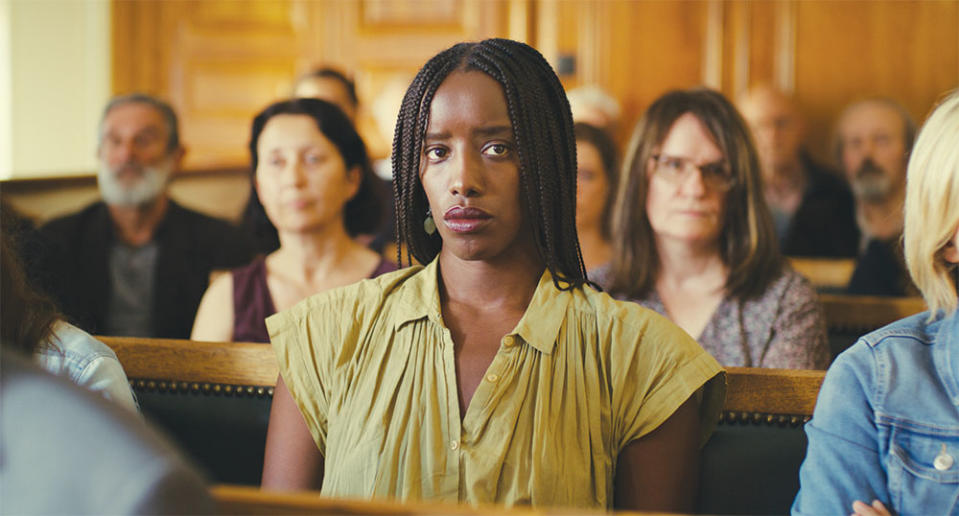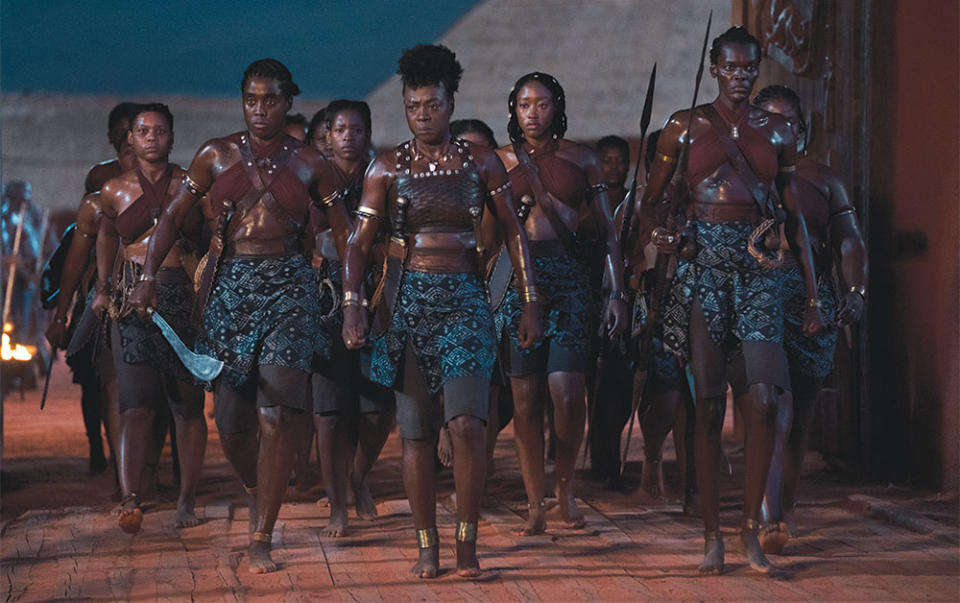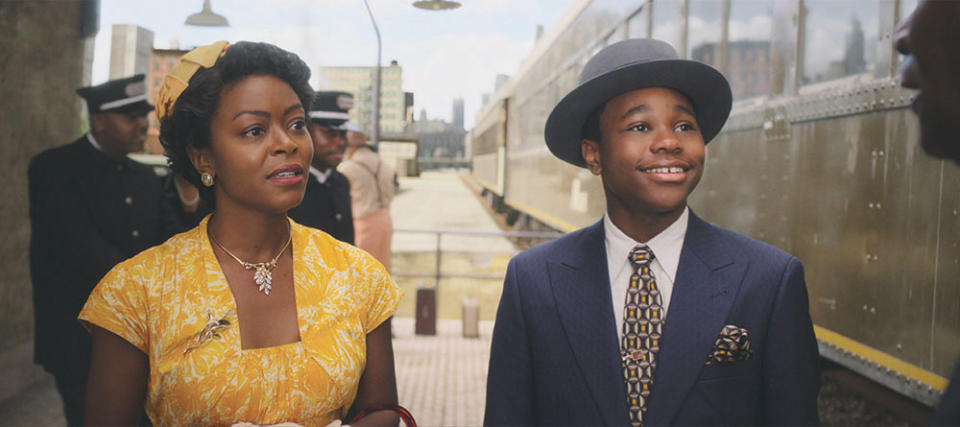Gina Prince-Bythewood on the Oscars Shutout of ‘The Woman King’: “This Awards Season Was an Eye-Opener”

When the Oscar nominations were announced in January, some of the most prominent omissions were films made by and starring Black women, including Gina Prince-Bythewood’s The Woman King, with a cast led by Viola Davis; Chinonye Chukwu’s Till, starring Danielle Deadwyler; and Alice Diop’s Saint Omer, which was France’s selection for international film. Prince-Bythewood opens up about what those omissions mean to her.
I am currently a producer on a project, and the executives were adamant that the director we chose be a Black Oscar-winning director. While that sounds great, who would that be? In the 95-year history of the Academy Awards, no Black filmmaker has ever won best director. No Black woman has ever been nominated.
More from The Hollywood Reporter
This awards season was an eye-opener. I was thinking about how to encapsulate what it feels like to be a Black filmmaker in the awards conversation, and I thought about my recent screening of The Woman King at UCLA, which is my alma mater. There were a couple hundred students in the film school, and it was an incredible screening. The Q&A afterward was supposed to be an hour, and it ended up being two hours of conversation. Just a beautiful environment, beautiful reception. And I left there on a high. Just 15 minutes later, I stopped in Westwood at a makeup store, Ulta, to grab something I needed for an event later. And I got followed around by the security guard. I was like, “What a contrast.” Within a half-hour period, I had people seeing me as an artist — really seeing me. And then, I was at a low of seeing a perception of me that has been built through decades of discrimination, and the images of us that the media has created. That hurt.
I’ve gotten so many texts and emails from people in the industry outraged by the Oscar nominations. Of course I’m disappointed. Who wouldn’t be? Especially because there was so much love for our film. And we can never forget that we already won. Not only does The Woman King exist in the world, but it’s a success in the world. For any hater out there hoping to gaslight and say maybe we just weren’t good enough, you can’t argue the facts of our A+ Cinemascore — which only two other films achieved last year — or the 94 percent fresh score on Rotten Tomatoes, or the number of top 10 lists including AFI and National Board of Review. We’re going to pass $100 million at the global box office, which is groundbreaking and historic. Sales on VOD and DVD are great. So, our film made money and clearly had a cultural impact, which is what we all hoped for.
But the Academy made a very loud statement, and for me to stay quiet is to accept that statement. So I agreed to speak up, on behalf of Black women whose work has been dismissed in the past, is dismissed now like Alice Diop and Saint Omer, Chinonye Chukwu and Till — and for those who haven’t even stepped on a set yet.

The Woman King wasn’t snubbed. A snub is if it missed out on a category or two. The film was not nominated for one single craft. Not one single extraordinary performance was recognized. And when has that happened for a successful film that hit all the so-called markers? It’s not a snub. It’s a reflection of where the Academy stands and the consistent chasm between Black excellence and recognition. And, sadly, this is not just an issue in Hollywood but in every industry. I’m going to use a Dr. King quote because it is so apropos, in that he spoke on the “lie of [our] inferiority accepted as truth in the society dominating us.”
As I moved through this awards season, I was struck by the Academy members who simply didn’t want to see the film. People thought it was a compliment at some of our screenings to tell me they had to be dragged there, because they didn’t think it was a film for them, or spoke of contemporaries who couldn’t be convinced to come with them, and being so surprised by how much they loved the film. To hear that over and over, it’s tough to stomach.

I don’t approach any film like that. I saw Everything Everywhere All at Once and Top Gun: Maverick because I heard they were really good. When you hear that, you go to the movie. Or you look at the trailer and say, “I want to see that. That looks good to me.” We, Black women, do not get that same grace. So the question we need to ask is, “Why is it so hard to relate to the work of your Black peers?” What is this inability of Academy voters to see Black women, and their humanity, and their heroism, as relatable to themselves?
Of course, everyone is talking about what happened with best actress. Two women were considered as probable nominees: The Woman King’s Viola Davis was nominated for a Critics Choice Award, BAFTA and SAG Award, and Till’s Danielle Deadwyler won the Gotham Award and was also nominated for BAFTA, SAG and Critics Choice, but both failed to earn notice from the Academy. My issue with what happened is how people in the industry use their social capital — screenings in their homes, personal calls, personal emails, personal connections, elevated status. People like to say, “Well, Viola and Danielle had studios behind them.” But we just very clearly saw that social capital is more valuable than that. That type of power is exercised in more casual ways in social circles, where folks are your friends or your acquaintances. There may be diversity on your sets but not in your lives. And Black women in this industry, we don’t have that power. There is no groundswell from privileged people with enormous social capital to get behind Black women. There never has been.

Also, I think about my craftspeople. They did extraordinary work. And for most of them, it was their first time in a film of this size. I had to fight to get them on my crew because they didn’t have the résumé. Having an Academy Award or any of these guild awards on their résumés, the next time they go up for a job, they don’t have to have that fight. But when we’re not afforded this type of recognition, so many of them have to start back at square one.
There are those who say to Black filmmakers, “Why do you care about awards? Why do you care about validation from a white organization?” And that’s the thing. The Academy and the guilds should not be thought of as white institutions. They’re supposed to be made up of our peers. They’re not. They don’t represent the whole filmmaking community. But what awards give you is currency. They impact your standing. They impact the box office. They impact the steps you take in this industry. They impact who gets final cut.
Certainly, for Black creatives right now, there is a palpable feeling of exhaustion. The industry wanted to make a shift in 2020 after the death of George Floyd. And so many of us thought finally the desire was true, the efforts were real and that Hollywood wanted to be better. And, in some ways, they wanted to be better than America. “Let’s show how progressive Hollywood is!” And they pledged to change, and they fought for inclusion. But now — perhaps because it’s hard to wrestle with that guilt over sustained periods of time — we, as Black filmmakers, feel Hollywood taking their foot off the gas. Feeling, “We’ve done enough, we’re done.” And that’s a difficult thing.
The truth is, in terms of me and my career, I’m good. I know I have ample opportunities for my next film. I’m grateful for that. You don’t go into any film to get awards. You do it because of the love of the material. For me, this film was everything I had dreamed about being able to do. It was a profound experience, and I can’t wait to do that again. In terms of my choices, the way I work, none of that changes. I’m going to keep grinding and doing work that I believe in. I’m never taking my foot off the gas.
It’s a difficult thing to know, for every Black filmmaker and definitely every Black female filmmaker, that your work is not valued in the same way. This is a systemic American problem, which is why this felt so insidious and large. It’s tough to enter something that’s supposed to be judged on merit, but you know it’s not a meritocracy.
I want our industry to be better. What does “for your consideration” mean when you don’t press play?
This story first appeared in the Feb. 8 issue of The Hollywood Reporter magazine. Click here to subscribe.
Best of The Hollywood Reporter

 Yahoo News
Yahoo News 
